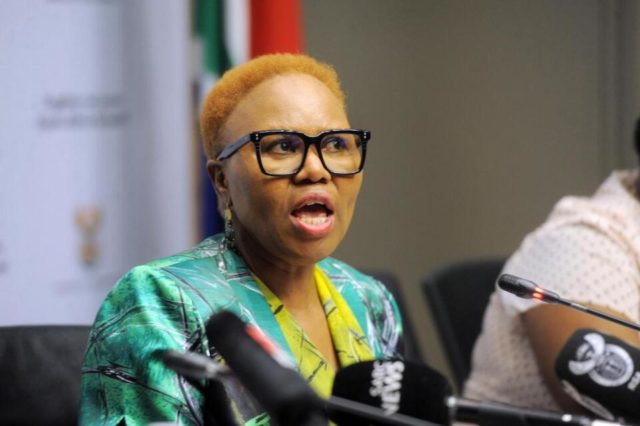Minister Zulu rejects claims that department is trying to prevent distribution of Covid-19 food relief aid by civil society organisations
SOCIAL Development Minister Lindiwe Zulu has dismissed “the false allegations in the media” that the department intends to prohibit the distribution of food parcels and cooked food to households and communities most in need of humanitarian relief during the Covid-19)pandemic.
“The Non-Profit Organisations (NPO) Act, which the Department of Social Development is a custodian of, states that we ensure access to food security for the poor – especially during this critical time,” she said in a statement.
“We are grateful to the private sector, aid agencies, and civil society organisations for their generous donations of food to those most in need during this difficult time,” Zulu said.
South African legislation acknowledged essential services contributions by civil society, which represented a fundamental part of the country’s democracy.
“To comply with social distancing guidelines, the department has changed its modus operandi of serving cooked food at community centres to the door-to-door delivery or knock-and-drop system of pre-packed food to families. However, over the last past weeks, the department has recognised, and has been informed of several incidents of long queues and overcrowding at food-parcel distribution areas across the country,” Zulu said.
The current unco-ordinated distribution of food parcels created an environment for the spread of Covid-19 among the most vulnerable people, she said, adding that protecting the people against possible infection was as important as providing food relief.
“To avoid the recurrence of such incidents and to comply with the lockdown regulations, the department drafted directives on co-ordination of food donations and other humanitarian relief efforts. The rationale for these directives is that humanitarian responses to a crisis of this magnitude often involve large numbers of national and international organisations who work in the same geographical areas.”
Failure to work together among these organisations could lead to gaps in coverage and duplication of humanitarian relief efforts. For this reason, the department had drafted directives to ensure the finality of the collaboration and co-ordination of relief efforts, she said.
The directives were aimed at ensuring that the distribution of food parcels was done in a dignified manner and that did not expose people to possible infection.
“It is for this reason that we encourage organisations that are involved in humanitarian assistance to work jointly with the government to ensure that there is a co-ordinated response and to eliminate opportunities for corruption and manipulation of these efforts.”
The need for collaboration and co-ordination of all humanitarian relief efforts between government and civil society organisations was premised on the understanding that the department alone could not meet the unprecedented socio-economic problems brought about by the pandemic.
There were more benefits if everyone worked together to strengthen the national response and to reach those most in need wherever they were, than working in silos, Zulu said.
She added that the department had a long-standing partnership with civil society organisations and that in many parts of the country, the department was working jointly with the sector to address the needs on the ground.
“I take this opportunity to once again salute the speedy and courageous efforts of civil society organisations that continue to meet the basic needs of those most in need during this unprecedented time,” Zulu said.
– African News Agency (ANA)








